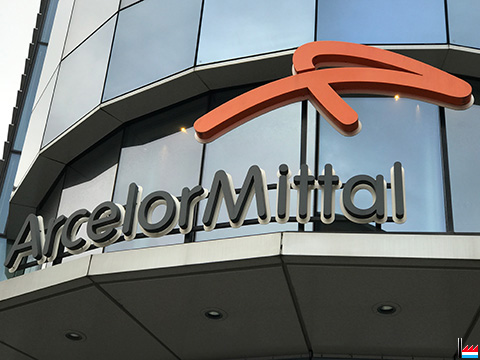The International Trade Administration Commission (ITAC) of South Africa has initiated an investigation into the surge of steel imports following pressure from ArcelorMittal South Africa (AMSA), the country’s largest steel producer.
The investigation, which was formally requested by AMSA, will scrutinize imports of flat-rolled steel products, particularly those coated with aluminium-zinc alloys or zinc.
AMSA, in a formal appeal to ITAC, expressed concern over the rising influx of these imports, claiming that they have been detrimental to local steel manufacturers.
The company argues that the influx of these steel products has led to a sharp decline in sales, production, profit margins, and employment within the Southern African Customs Union (SACU).
“These imports are undercutting the domestic market, resulting in significant harm to local manufacturers,” said AMSA in its request. “The impact has been felt not only in terms of financial loss but also in the reduction of jobs within the sector.”
The steel products under investigation are categorized under tariff subheadings 7210.61.20, 7210.61.30, 7225.92.25, and 7225.92.35.
According to industry experts, South Africa imports around R66 billion worth of steel products annually, and a substantial portion of these imports are reported to be coming from countries with lower production costs, thus raising concerns of unfair competition in the local market.
This investigation is set against the backdrop of a volatile global steel market, where price fluctuations and trade policies have intensified competition.
AMSA claims that the sharp rise in imports, particularly in the flat-rolled steel segment, was driven by changes in global supply chains and the impact of unforeseen international events.
The ITAC investigation will assess whether the increased imports have caused significant harm to South African steel producers, potentially leading to safeguards or other protective measures.
The outcome could have far-reaching consequences for both local manufacturers and international trading partners in the region.
The move has sparked a broader debate on the protection of local industries versus the benefits of open international trade.
While some industry leaders support AMSA’s stance, arguing that safeguarding the local steel sector is crucial for job preservation and economic stability, others warn that protective measures may hinder competition and increase costs for consumers.
As the investigation unfolds, the South African steel industry is bracing for potential changes in trade policy, with stakeholders keenly awaiting ITAC’s findings.
Industry Concerns and Future Outlook
The results of this investigation are eagerly anticipated, as the South African steel industry is a cornerstone of the country’s industrial sector.
However, the increasing pressure on ITAC to act on behalf of local manufacturers raises broader questions about how South Africa will navigate the delicate balance between protecting domestic industries and fostering a competitive global marketplace.
With global trade policies evolving and concerns over supply chain disruptions persisting, the steel industry will need to adapt quickly to whatever regulatory changes emerge from this investigation.
For now, the future of South Africa’s steel market hangs in the balance as ITAC’s investigation continues.
Also Read
BPCL Share Price Declines 1% to ₹272.55 Despite Strong Q3 Performance
Stallion India Fluorochemicals IPO Makes Strong Market Debut
